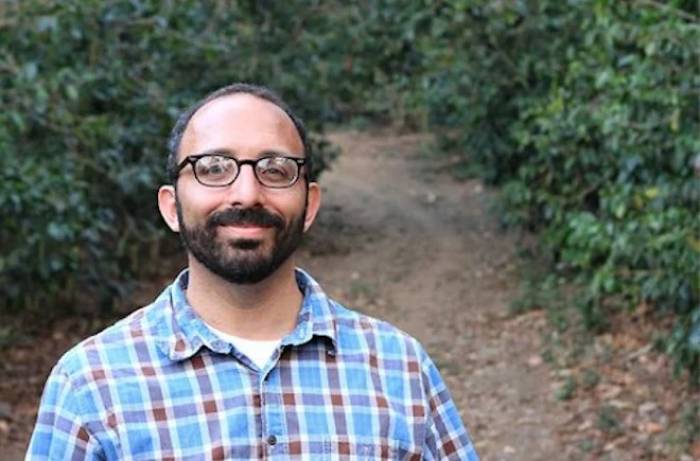A serendipitous encounter at a California coffee shop sparked the beginning of Peter Giuliano’s formidable 30-year-plus specialty coffee career. The Executive Director at the Coffee Science Foundation and Chief Research Officer at the Specialty Coffee Association (SCA) speaks to World Coffee Portal about the importance of continual learning and why diversity is the industry’s greatest asset

Peter Giuliano, Executive Director at the Coffee Science Foundation and Chief Research Officer at the Specialty Coffee Association
What have been some of the formative moments of your coffee career?
I grew up in Southern California near San Diego and there was coffee shop I used to visit with my friends. One day somebody didn't show up for work and the manager asked if I would like to work a shift. I skipped college, they threw me an apron and I have worked in coffee ever since.
After working as a barista, I became a shop manager and ended up running a chain of coffee shops in San Diego in the 1990s.That’s when it kind of shifted from being a job to a career for me.
After 13 years of working in specialty coffee I joined Counter Culture Coffee in North Carolina and soon became co-owner of the business during what people call the third wave era of coffee from around 2000. So that was my second career in coffee, from running retail businesses to being really focused on wholesale and coffee supply chains.
A lot changed in 2000 when commodity coffee market prices fell. When coffee got cheap, suppliers became frustrated and were often unable to cover their costs. We realised we needed to understand our own supply chains better and become clear about who was supplying coffee to us, build personal relationships with them and stabilise our system.
How did you get involved with the SCA?
When I managed coffee shops, I became really interested in teaching staff about coffee. But being a coffee guru can be lonely when you’re the person that everybody looks to for knowledge. One day I attended a class that the Specialty Coffee Association of America (SCAA) was hosting, and I was in a classroom with 20 people as geeky about coffee as I was.
The Specialty Coffee Association (SCA) provided me with a network of people that expanded beyond my own company. I got involved with some other ‘coffee fundamentalists’ and we created the Coffee Roasters Guild which provided me with a valuable professional community. The SCA helped me transition from having a coffee job to a coffee career. When I left Counter Culture, it was a natural transition for me to work for the SCA.
Why is research important to the specialty coffee industry?
Knowledge is a crucial aspect of specialty coffee. Commodity coffee has far less story or technique behind it while specialty adds layers to the basic coffee experience. The sensory element is vital, and flavour can come through agriculture, roasting or brewing.
These processes can be understood through science and technique. Whether we’re roasters changing green coffee to brown coffee or a barista changing brown coffee to a beverage, we know that we’re in charge of this alchemy and it’s really important to the final experience.
However, because of the way the coffee industry has always been structured – with coffee production happening in the global south and consumption traditionally happening in the north – much of this has been a mystery, especially with regards to agriculture.
“A lot changed in 2000 when commodity coffee market prices fell”
The SCA is focused on education and knowledge can’t exist without research. My role at the SCA has involved building coffee knowledge through industry resources, including consumer research, sensory science, agricultural and economic research.
For example, we all know cold brew is different than coffee brewed with hot water, but we don't know much about why and we’re currently in the middle of a three-year research project to help us understand where these differences come from. The second part of my job involves getting knowledge out into the specialty coffee community through articles, lectures, classes, curriculums and education programmes.
What are the biggest challenges facing the coffee industry?
Climate change is on everybody’s mind. We’re aware that coffee is susceptible to changing temperatures and that’s going to have an impact on agriculture. But we don’t know exactly how that's going to manifest. Many people were aware of the threat pandemics posed but we didn’t know exactly what it was going to look like until it happened. It’s the same thing with climate change and its effects on coffee, agriculture and supply chains and we need to prepare ourselves for all possibilities.
How would you describe the industry today?
Specialty coffee in the 1980s and 1990s, particularly in the US, was very much inspired by Europe. We had Italian names for coffees and the espresso machine was very important as a representation of what specialty coffee was.
Today, the European coffee style is just one of the many coffee cuisines available. In Southern California, for example, we have super specialist coffee shops using terminology almost like wine alongside a vibrant Latin American-style coffee scene where it’s all about horchata lattes (cinnamon rice milk with a shot of espresso). There are also Korean and Vietnamese-style coffee shops creating this amazing diversity in specialty coffee that did not exist 20 years ago.
Coffee businesses look very different from each other and so do coffee drinkers. The coffee culture in London or New York is very different to Seoul, Tokyo, Jakarta, or across the Middle East, and that’s exciting. That diversity can be challenging but it is really healthy – because diversity brings resilience.
Peter Giuliano is Executive Director at the Coffee Science Foundation and Chief Research Officer at the Specialty Coffee Association